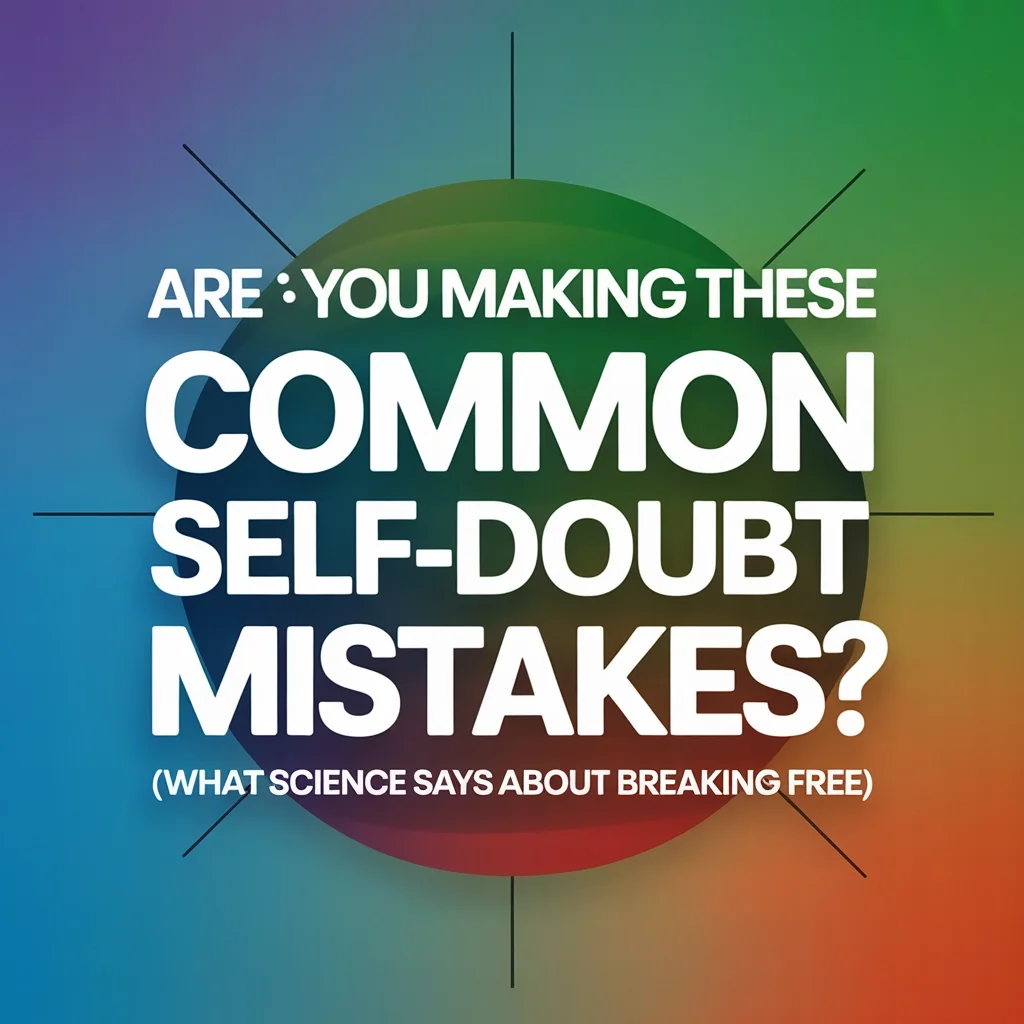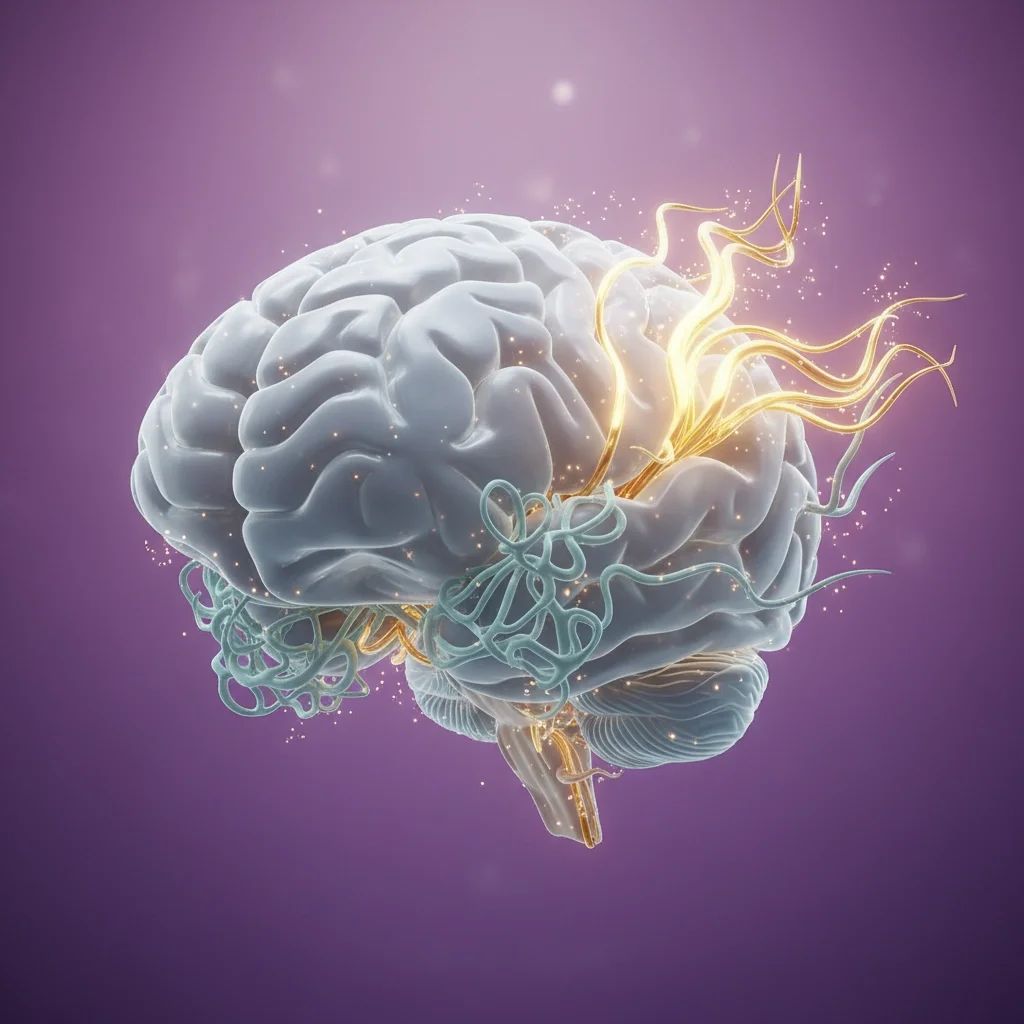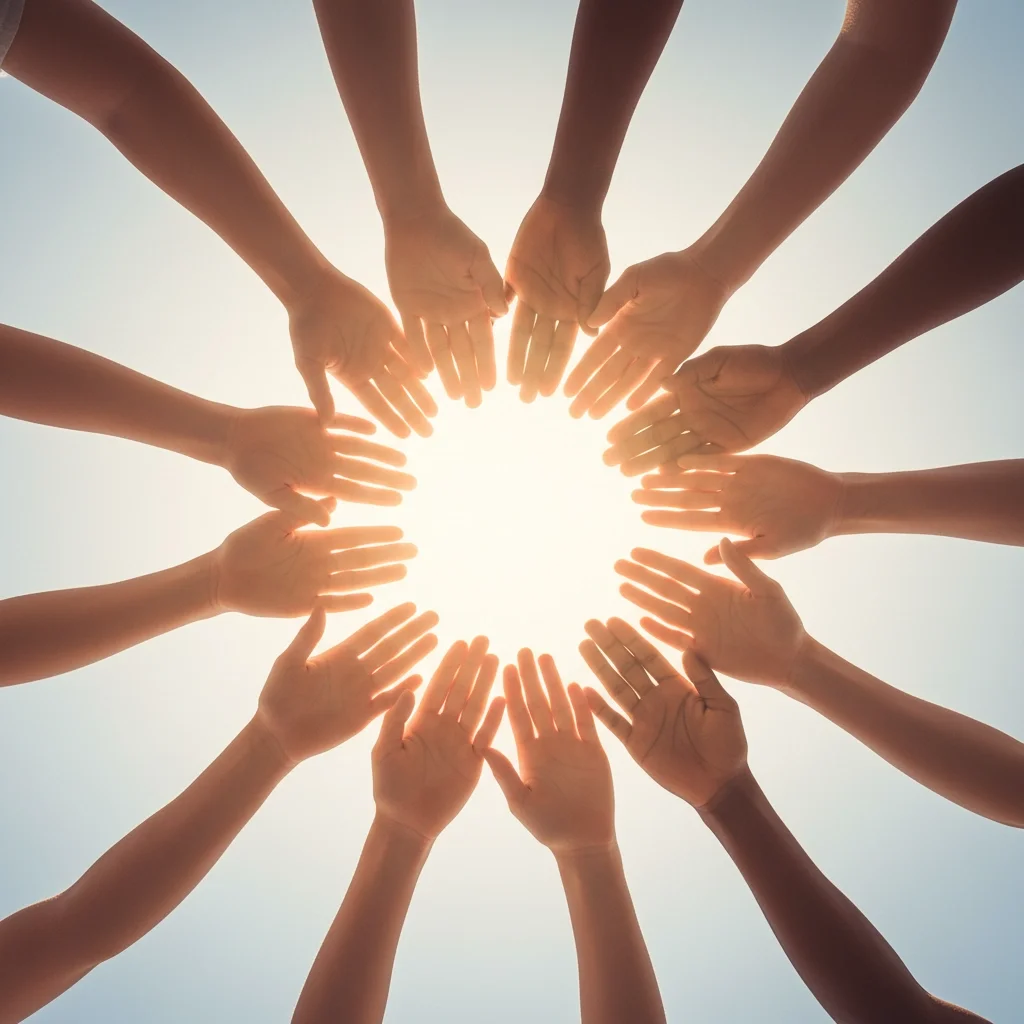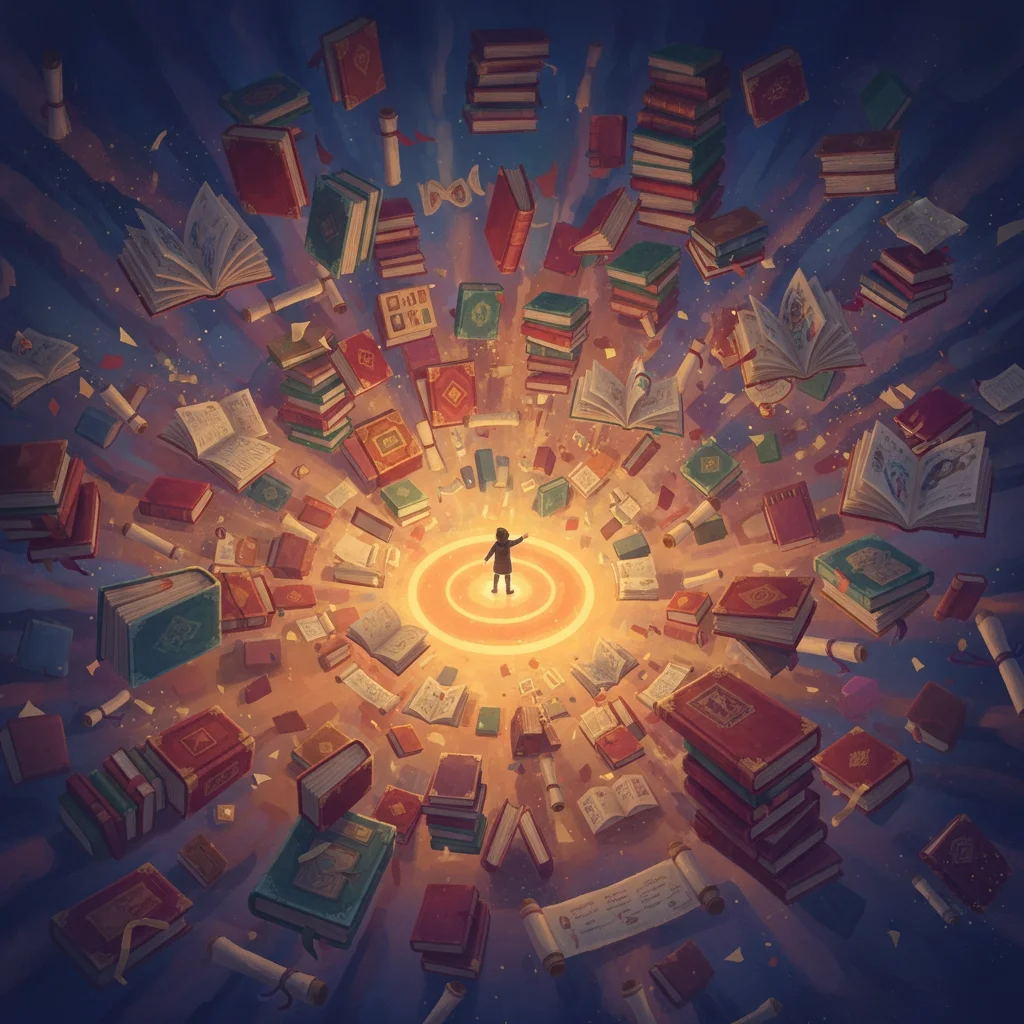Are You Making These Common Self-Doubt Mistakes? (What Science Says About Breaking Free)
That nagging voice in your head? The one that whispers "Who do you think you are?" right before you're about to take a leap?
Yeah, that one.
We ALL have it. But here's what most people don't realize, you're probably feeding that voice in ways that make it grow louder, stronger, and more convincing. And science? Well, science has some pretty fascinating things to say about why we do this... and more importantly, how to stop.
Let's dive into the most common self-doubt mistakes that keep you stuck, shall we?
The "I Can't" Trap (AKA The Self-Fulfilling Prophecy From Hell)
This one's sneaky because it feels so true when you're in it.
You tell yourself, "I can't do public speaking," or "I'm not good with money," or "I'll never find love." And then, surprise, surprise, you don't do the things that would prove you wrong.
The science behind it? Your brain literally creates neural pathways that reinforce these limiting beliefs. Every time you think "I can't," you're carving that groove a little deeper. And the deeper it gets, the more automatic the thought becomes.
It's like creating a mental highway that only goes to Limitation Land.
But here's the plot twist: You can build NEW highways. Your brain is incredibly adaptable (thank you, neuroplasticity!), and it's never too late to start paving a different route.
The Perfectionist Prison
Raises hand . Guilty as charged on this one.
Perfectionism masquerades as excellence, but it's actually fear wearing a really good disguise. The perfectionist mistake goes like this: You set impossibly high standards, and when you inevitably fall short of 100% perfection, you take it as evidence that you're not good enough.
Sound familiar?
Research shows that perfectionism doesn't just hurt your self-esteem, it literally paralyzes progress. When the bar is set at "perfect," your brain interprets anything less as failure. And failure... well, failure feels dangerous to our primitive brain.
So instead of trying and learning from the messy middle, you procrastinate. You overthink. You wait for the "perfect moment" that never comes.
News flash: The perfect moment is NOW. Messy, imperfect, beautifully human NOW.
The Natural Genius Trap
This one hits high achievers HARD.
If things came easily to you as a kid (hello, gifted child syndrome), you might have developed the belief that struggling = stupidity. So when you encounter something that requires actual effort, your brain goes into panic mode.
"Wait, I don't understand this immediately? I must be an imposter!"
But here's what the research tells us: The most successful people aren't the ones who never struggle, they're the ones who've learned to see struggle as part of the process, not evidence of inadequacy.
That feeling of being challenged? It means you're growing. Your brain is literally creating new connections, building new capabilities.
The struggle isn't the problem. The struggle is the POINT.
The Solo Superhero Complex
"I should be able to figure this out on my own."
Can we please retire this myth?
The solo superhero mistake is thinking that asking for help reveals weakness. So you exhaust yourself trying to figure everything out independently, burning through your mental energy like it's going out of style.
But science says otherwise. Studies on successful people consistently show one thing: They have strong support networks. They ask questions. They seek mentorship. They collaborate.
Your brain wasn't designed to know everything. It was designed to learn, adapt, and, here's the key part, connect with other brains.
That feeling you get when you finally share your struggle with someone who gets it? That's not weakness. That's your nervous system recognizing safety and connection.
The Expert Imposter Syndrome
"I need to know MORE before I can take action."
Oh, this one's a doozy. You delay taking action until you know everything, constantly seeking more qualifications, more certificates, more knowledge before feeling "ready."
But here's the thing: You'll never feel ready enough.
Research shows that expertise comes from doing, not from endless preparation. The people you admire? They started before they felt qualified. They learned by taking messy action, not by waiting for perfect knowledge.
You already know enough to take the next step. You might not know enough to take ALL the steps, but you definitely know enough for ONE step.
And one step? One step is everything.
The Story vs. Reality Mix-Up
This might be the most damaging mistake of all.
You know those moments when you're convinced your boss thinks you're incompetent, or your friend is mad at you, or everyone at the party thinks you're weird?
99.9% of the time, you're making it up.
I'm not saying this to dismiss your feelings: I'm saying this to set you FREE.
Your brain is a meaning-making machine. It's constantly filling in gaps with stories, assumptions, and interpretations. And when you're in self-doubt mode, those stories tend to be pretty unflattering.
But here's your new superpower question: "Am I making this up, or is it actually happening?"
That thought about your colleague judging your presentation? Story.
The fear that you're not qualified for that promotion? Story.
The belief that you're "behind" everyone else your age? Story, story, story.
Reality is usually much kinder: and much simpler: than the stories we tell ourselves.
The Science of Breaking Free
So how do we actually change these patterns? Science has some pretty clear answers:
Mindfulness is your secret weapon. When you become aware of your thoughts without judgment, you create space between the thought and your reaction to it. That space? That's where your power lives.
Reframe self-doubt as growth. Instead of seeing doubt as evidence that you shouldn't proceed, see it as evidence that you're expanding. Bigger goals create louder doubt: that's not a bug, it's a feature.
Celebrate micro-victories. Your brain learns through repetition. Every time you acknowledge progress (however small), you're rewiring those neural pathways toward self-compassion and confidence.
Take action WITH the doubt. You don't need to wait for confidence to show up. Confidence is built through action, not the other way around.
The Truth About Self-Doubt
Here's what I want you to know: Self-doubt isn't a character flaw. It's not evidence that you're not cut out for your dreams. It's simply your brain trying to keep you safe in the only way it knows how.
But safety and growth? They rarely happen in the same space.
The most successful, fulfilled, joyful people I know still experience self-doubt. The difference is, they don't let it make their decisions FOR them.
They feel the doubt, acknowledge it with compassion, and then take the next step anyway.
Because on the other side of that doubt? That's where the magic happens.
That's where you discover just how capable, creative, and courageous you really are.
So the next time that voice starts up with its familiar refrain of "Who do you think you are?"
You can smile and respond: "I'm someone who's learning, growing, and brave enough to try. And that's exactly who I'm supposed to be."
What if you stopped making these mistakes? What if you started seeing your doubt as a compass pointing toward your next level of growth?
What becomes possible then?







